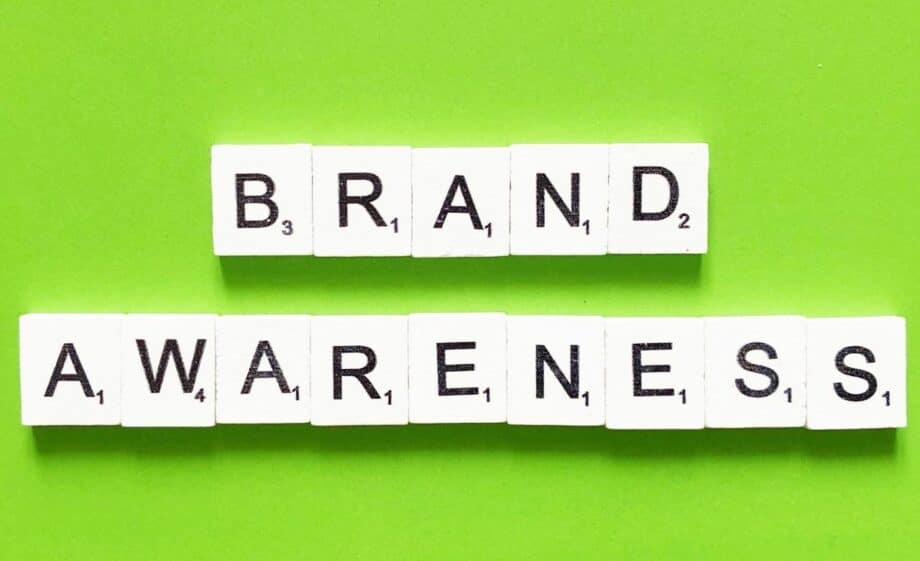Brand awareness serves to establish trust between you and your target audience. Brand awareness campaigns assist you in building successful alliances with customers based on trust. Trust strengthens customer loyalty. Loyal and happy customers will encourage you to their friends and family, which earns you more customers in the long run.
Brand awareness leads to how memorable your brand or company is to your target customers. It’s how quickly people acknowledge your brand when, for instance, they hear your company title or see your logo. A brand awareness campaign strives to promote your brand’s “recognizability” to your target attendees.
You’re attempting to guarantee your perfect customers have the best opinion of your brand. You want them to connect your company with a specific product or type of service. You’re working to improve your unique selling point (USP) and what makes your business stand out from the competition.
Every firm can use them. Whether you’re a startup just trying to create a name for yourself in a crowded marketplace, or you’re seeking to rebrand an old company, you can profit from a brand awareness campaign. A campaign provides you some control over how people eventually notice your brand. Sure, you can’t understand what people think, but you can positively promote your brand in a way that nourishes concrete relationships.
It’s surprisingly manageable with the following key steps.
Understand Target Audience
Look at your existing customer base. These are the people who previously identify with your brand, so watch what they have in common. Consider what matters to them, what difficulties they have, and how your products benefit them. Do some market research. The chances are that your target audience shops with your competitors, so spend time doing your research. Interpret your outcomes and create a portrait for your ideal customer. Your association with your brand will improve your campaign.

Focus on the Platforms; Audience Practices the Most
A comprehensive brand awareness campaign isn’t just about who you target. It comes down to researching your target audience and identifying where your campaign will make the most impact. For instance, if you opt for a Twitter campaign, pick a memorable hashtag and start tweeting. Suppose you prefer Instagram, design visually appealing posts and concise, catchy Instagram Stories. Rather than expanding your energy across varied social media platforms, focus on the ones your target customers use most often.
Set Achievable Goals for Campaign
Each successful marketing strategy starts with a set goal or outcome in mind, so use time reflecting on what you hope to achieve. Set concrete short-term and long-term goals. Decide:
• What do you want to accomplish from your campaign?
• How the campaign fits into your more comprehensive, long-term plans for your label
• Which strategies you will apply to accomplish your goal, e.g., PPC ads, influencer marketing, social media posts, and so on
• How you’ll track your progress
Ally with Complementary Brands
A brand partnership means running with a complementary brand to generate value, increase your exposure, and extend your audience reach. It would help if you didn’t choose a direct competitor but a company with a broadly similar target audience. Prefer a brand you can partner with to best display your USP.
Be Active and Engaging Online
In a highly competitive marketplace, consumer engagement counts. Whether you’re responding to tweets, acknowledging customer support messages, or altogether liking user-generated content on Instagram, every interaction adds up over time. Begin communicating. Guarantee you’re creating regular content. If you can’t post daily, at least receive online four or five times per week to generate some traction behind your social media accounts.

Highlight Brand Personality
The entire point of a brand awareness campaign is to determine how people perceive your brand, so highlight your company’s personality every time you post something new. Keep your brand messaging compatible, and you’ll make your target audience one step closer to getting the correct associations with your business. Examine each post as an occasion to promote personality and improve brand awareness. Your business is unparalleled, so use promotional items like custom bottled water to highlight what makes it so unique.
Elevate Customer Experience
For 80 percent of customers, the encounter matters as much as whatever goods companies sell. If you need to leave a positive, lasting impression on your customers, you should enhance the customer experience. Your brand awareness campaign shouldn’t just be concerning influencing your company. It should explain to customers how you can support them and why their needs matter to you. You can instantly expand your brand awareness by prioritizing the customer experience and confirming how much you appreciate their feedback.
Track Results
The metrics impressions shared tweets and hashtag mentions help in tracking results. On the other hand, if you choose to run paid ads, you could utilize Google Analytics to trace your click-through rate (CTR) and conversions. What’s remarkable is that you measure your results and achieve strategy changes if needed.
Final Thoughts
A brand awareness campaign is planned to improve consumers’ awareness of your brand and its stands for. It should promote your overall recognizability. Brand awareness campaigns can support you to stand out from competitors, develop customer loyalty, and even decrease your customer acquisition costs over time. If you’re looking to grow your business and build customer relationships organically, building a campaign for brand awareness may help. A brand awareness campaign allows you to shape how potential customers perceive your company. With the right drive, you can directly influence what people think when they hear your brand’s name, and you can ensure that customers remember your name for the right reasons!







